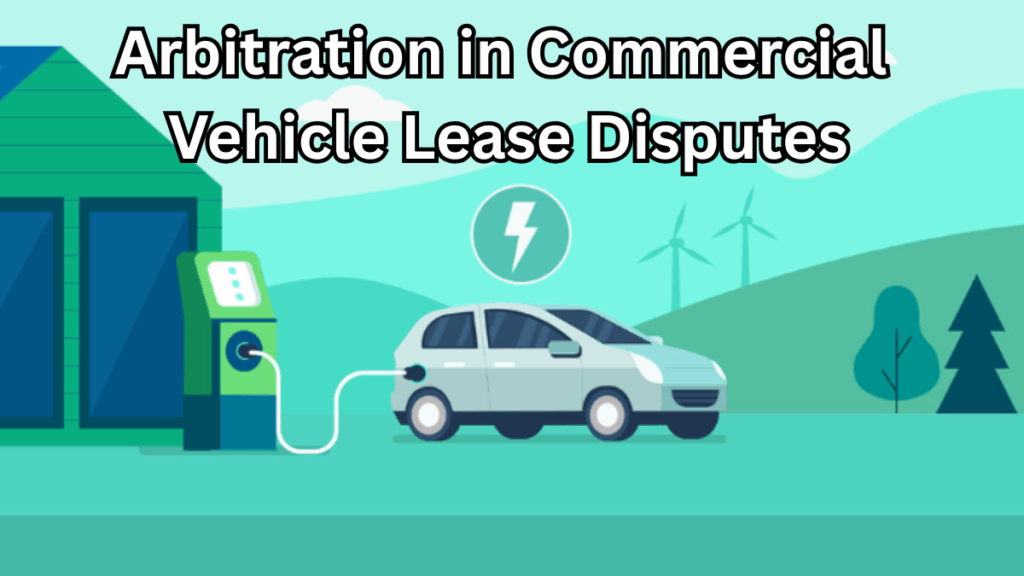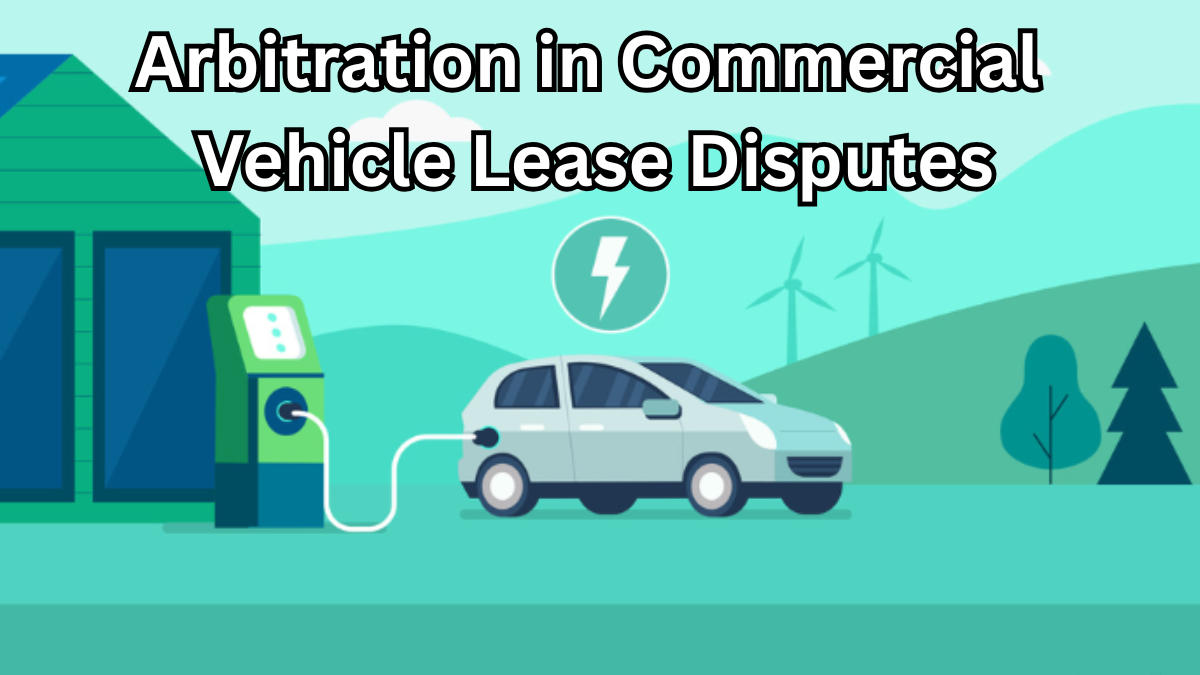Commercial vehicle leasing has become a crucial part of India’s booming transport and logistics industry. But with this growth, Commercial Vehicle Lease Disputes have also seen a rise. From payment defaults to disagreements over maintenance, conflicts are inevitable.
To resolve these quickly and effectively, businesses are increasingly opting for fleet contract arbitration, a method that promises faster, private, and less expensive outcomes than traditional litigation.

Why Arbitration is Preferred in Fleet Lease Disputes
Arbitration is proving to be a practical solution for companies involved in vehicle lease contracts.
Key advantages of arbitration:
-
Faster dispute resolution
-
Confidential proceedings
-
Flexibility in choosing arbitrators with specific industry knowledge
-
Cost-effective compared to court litigation
-
Legally binding decisions
Common Issues in Commercial Vehicle Lease Disputes
Here are the most common causes of conflict between lessors and lessees in India:
| Type of Dispute | Description |
|---|---|
| Payment Defaults | Missed or delayed lease payments |
| Early Termination | Premature ending of lease agreement |
| Misuse or Damage | Improper use or physical damage to vehicle |
| Service & Maintenance Responsibility | Disputes over who handles upkeep or repairs |
| Insurance or Accident Liability | Claims regarding theft, damage, or accident cost |
Many of these cases are now being resolved through fleet contract arbitration, where a neutral arbitrator makes a binding decision based on the lease agreement.
The Fleet Contract Arbitration Process
Step-by-step process:
-
Arbitration Clause Activation
The process begins only if the lease agreement includes a valid arbitration clause. -
Appointing an Arbitrator
Both parties mutually appoint one, or approach a legal institution like the ICA or MCIA. -
Evidence Submission
Documents such as payment records, vehicle condition reports, and communication logs are reviewed. -
Hearings
These can be conducted in person or virtually. -
Final Award
A binding decision is issued, typically within 3–6 months.
Arbitration’s Growing Role in 2025
In 2025, fleet-based businesses are increasingly reliant on commercial vehicle lease arbitration to settle disputes efficiently. Courts, too, encourage arbitration to reduce their burden.
Real-world examples:
-
A Hyderabad-based logistics company used arbitration to recover unpaid dues worth ₹15 lakh in 4 months.
-
A Bangalore fleet aggregator settled a misuse dispute involving GPS tampering through online arbitration.
Arbitration vs. Litigation
| Aspect | Arbitration | Litigation |
|---|---|---|
| Time | 3–6 months | 1–3 years |
| Cost | Moderate | High legal fees |
| Privacy | Fully confidential | Public record |
| Flexibility | High (location, language, virtual) | Low |
| Expertise | Arbitrator can be industry expert | Judge may not specialize |
Legal Backing in India
The Arbitration and Conciliation Act, 1996, governs arbitration proceedings in India. As per the Act, Commercial Vehicle Lease Disputes fall within the scope of commercial disputes and can be arbitrated if there is an agreement in place.
Amendments to the Act in recent years have made it even more arbitration-friendly, ensuring faster timelines and reduced judicial interference.
Practical Tips for Fleet Owners and Lessees
For fleet companies:
-
Include a clear arbitration clause in all lease contracts.
-
Choose arbitration institutions that specialize in transport law.
-
Keep all communications and payment records documented.
For lessees:
-
Read the fine print of arbitration clauses.
-
Maintain regular records of maintenance and usage.
-
Settle issues early to avoid penalties or legal costs.
FAQs
What is fleet contract arbitration?
It is a legal mechanism used to resolve disputes related to leased fleet vehicles without going to court. A neutral third party hears both sides and gives a binding decision.
Are all vehicle lease disputes eligible for arbitration?
Yes, most commercial vehicle lease disputes can be resolved through arbitration as long as there’s an arbitration clause in the lease contract.
How long does an arbitration process take in India?
Typically, 3 to 6 months—much quicker than standard court litigation, which can drag on for years.
Is an arbitration decision legally enforceable?
Yes, under the Arbitration and Conciliation Act, 1996, the award is legally binding and can be enforced like a court order.
Click here to learn more
